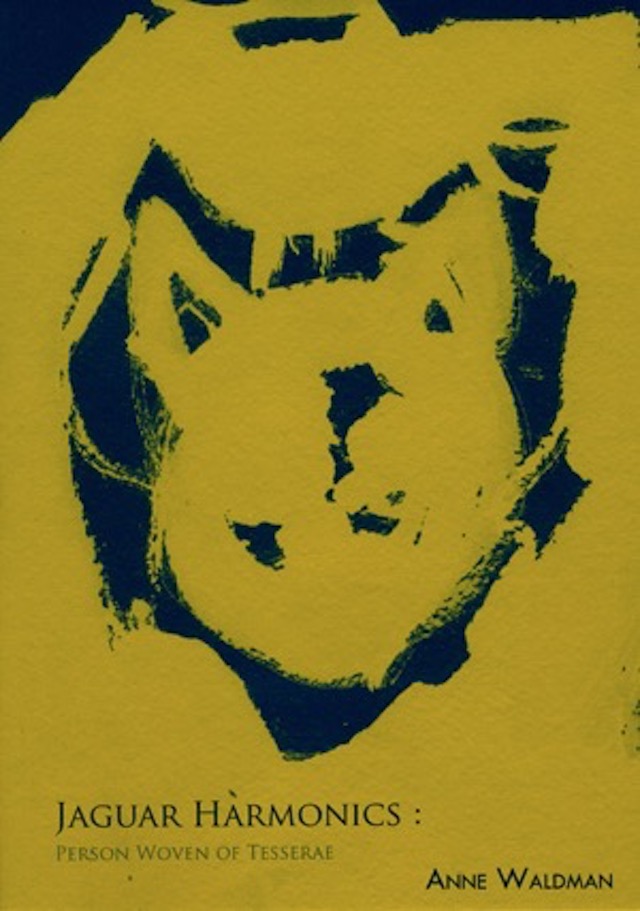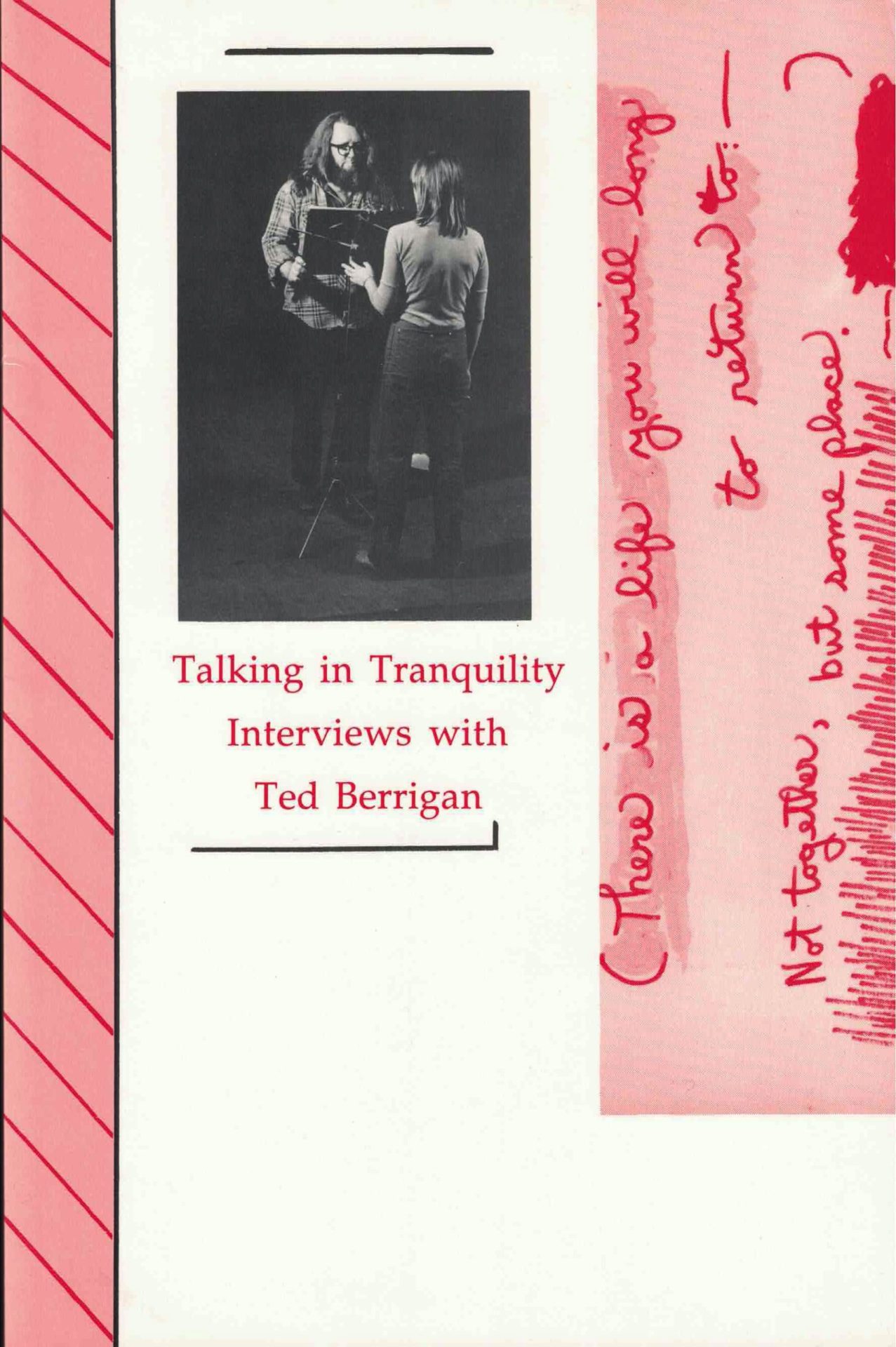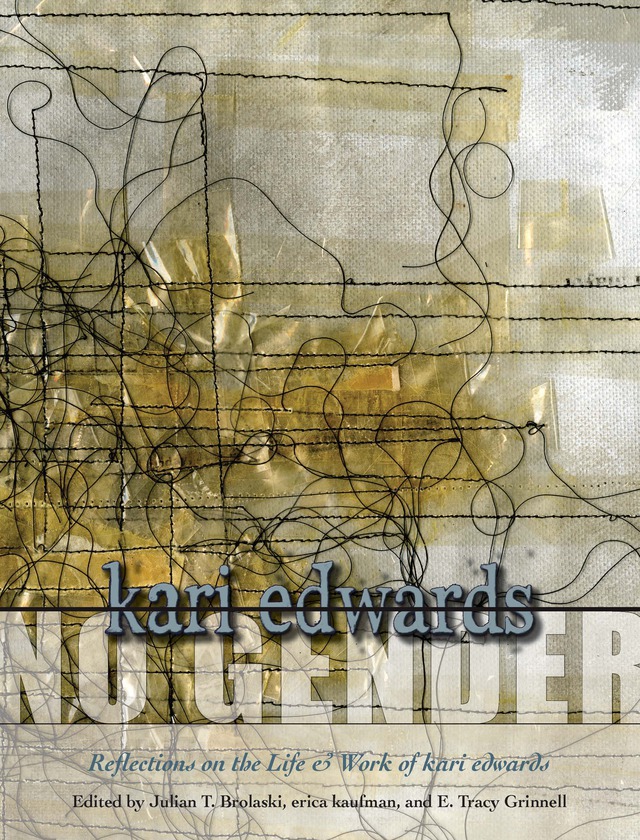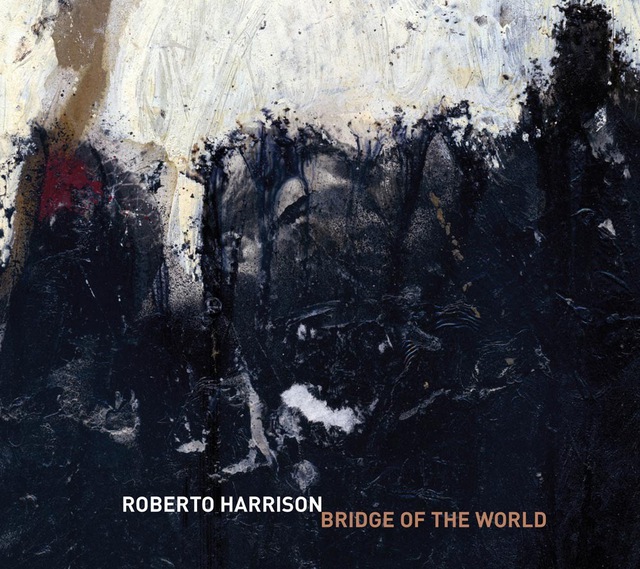Jaguar Harmonics was composed from notes made while participating in a ceremony with the extraordinary Taino Indians of Colombia, in an unbroken thousands of years’ spiritual tradition.
Is anything central? Can you strive? Can you cure? Are you votive identity? The baby jaguar is blind at first. What are your roots and what are your severances and what do they constitute of imagination? do you stalk can you heal will you climb. What is the link to the link of the trance of the trace of your heat-coil. Now you are quick, soon you will be dead. Ancestor! If roots are rural and you are on the ground barefoot, or if they are urban and you bend inwardly (your concrete sepulcher) will that help with the ground turning underneath your feet in jungle metaphor? And if the scene changes and suddenly abruptly something is riven—imploding rhythm—from you—then what? A new planet? What is being relational when you hardly know the kinetics of your own chemistry. And where you are from but you know goes back, back with all the other visitors who crowd your head. What will support mind in the longest sweetest quivering night you live and notate within, and how will you move to caution others: be still, be very still…. it’s dawn in the adventure, space and time.
— Anne Waldman, from Jaguar Harmonics
Anne Waldman
Praise for Jaguar Harmonics
In Anne Waldman’s Jaguar Harmonics, the voice of the Ayahuasca vine, a “person woven of sound” speaks to the poet and us: “now you are quick, soon you will be dead”; “you can’t just go around killing and conquering persons.” And the poet asks herself, can we hear the “mammal stealth” of these warnings? “The suffering on this land, what done to the indigenes?” “Men miss out in the mission in the fission if not listening.” Her listening creates a tesserae of sounds and languages for “poetry (to) blink you awake.” A masterful web that compels us to “put away the scriptures of doom” and “breathe in this world this time of cosmic night.”
— Cecilia Vicuña
I’m ever-grateful to Anne Waldman for her constant ability to expand my sense of the poet’s vocation, defined by her (building on Williams’s admonition) as “to propel the century forward a few inches.” With Jaguar Harmonics, Waldman inhabits the mode of direct perceiver, augur, one with divine eye and ear—able to see and hear the harsh and subtle forms of the infintesimal pieces of the world system. This is Waldman communicating to us in “crepuscular power-mode,” the value of each word first being located in herself, then creating an outbound intervention of perfectly tuned vibrations or “sound bands.” This compact tour de force addresses other key concerns in Waldman’s poetics; what is it to heal? What makes a word powerful? There are few poets who can inhabit the states of mind necessary to manifest a work like this; one that shows us the way toward a new relationship with the universe and each being in it.
— Stacy Szymaszek





In a book-length poem concerned with expanding and deepening sight, Waldman channels her signature lyric energy through the myths and rituals of the Ayahuasca vine, the plant used as an ancient entheogen and believed to give the jaguar perceptual gifts… Waldman culls the flotsam of experience to engage the living, perceiving, wounding, and vulnerable elements that make a single entity… “seamless and seam-full.”
— Publishers Weekly
Even the jaguar, a predator at the apex of the food chain, takes time out from hunting to stargaze, which raises Waldman’s central ethical question: how can we be better keepers of the cosmos?
— Lauren Schachter, Chicago Review